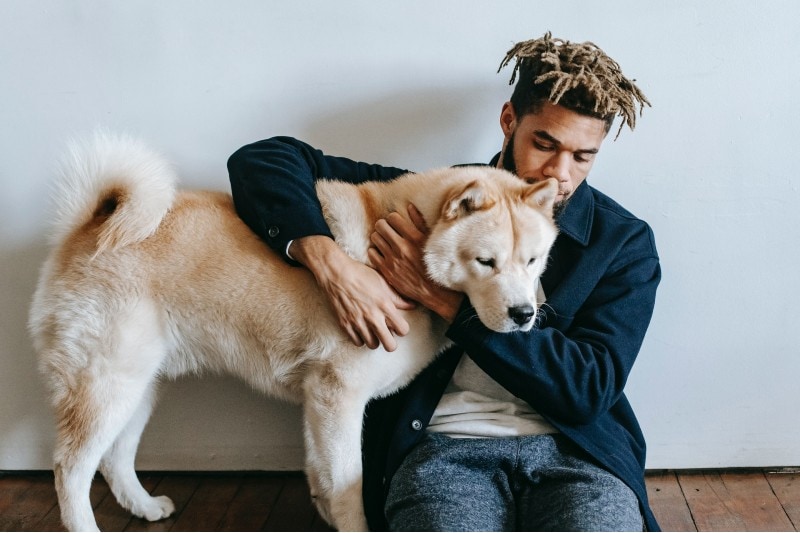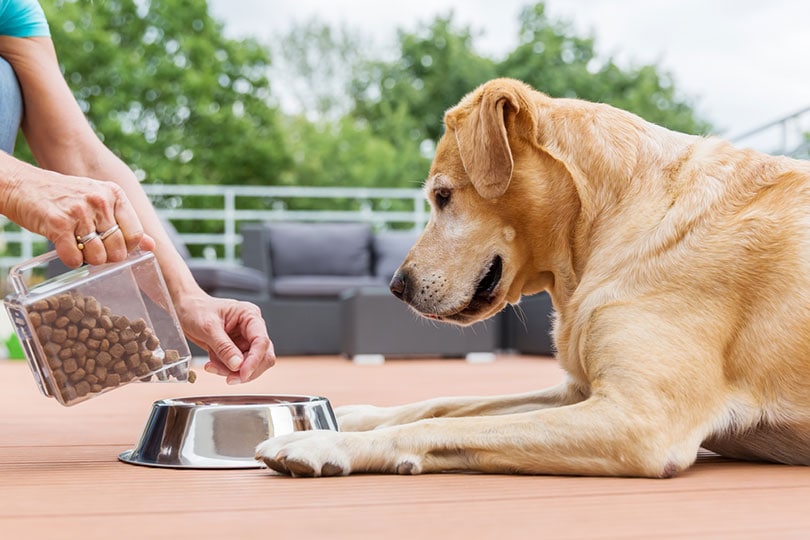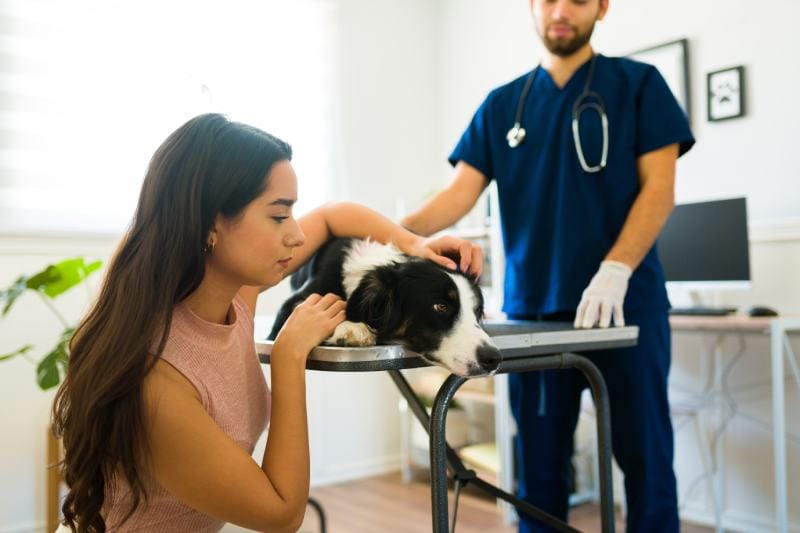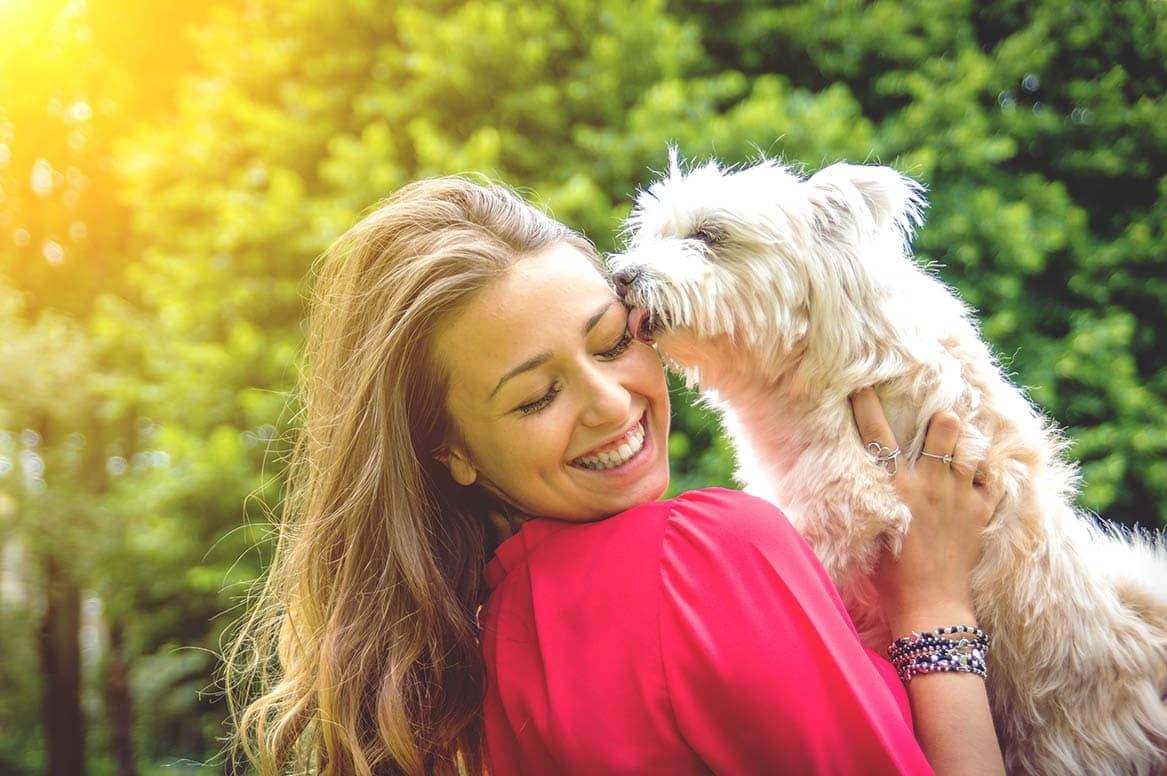How to Help a Grieving Dog: 8 Comforting Tips

Updated on

As pet lovers, we’ve all lost a pet that was a part of the family. We grieve in our own way, then try to move past it and move on with our lives. Many pet owners fail to realize that dogs grieve for the ones they’ve lost as well.
Whether it’s a person in your home that has passed or one of the other dogs you gave a forever home, your other dogs will miss them and grieve. If you’re wondering how to help your grieving pet, we’ll give you a few of the best tips below.
The 8 Tips to Help a Grieving Dog
1. Be on the Lookout for Signs of Grief
The first thing you’ll want to do is look for signs of grief in your pet. You already know that there is no right or wrong way to grieve, and the same holds true for your dog.
- Loss of appetite
- Needing to be with you at all times
- Searching for loved ones
- Depression or listlessness
- Howling or crying
- Changed sleep patterns
2. Stick to Your Daily Routine
It’s going to be hard for you to just return to your life and stick to a daily routine, but it’s important for not only you but your dog as well. There’s comfort in the routine flow of daily life for your pet. Dogs crave consistency, and they rely on it in order to feel safe and secure in their world.
Try to stick to the same feeding times, playtimes, and daily walk times that you did before your family member passed away. You should even try to go to bed at the same time that you always have.
If it’s a human that your dog is grieving, pay special attention to things that your dog would have been doing with that family member. For example, if they took the dog for a walk every day after lunch, your dog will expect that, so try to fill that need.

3. Monitor Your Dog’s Appetite/Eating Habits
Just as humans do, dogs don’t eat as much when grieving. However, some pups overeat to manage their grief. When mourning, in most cases, the first thing to go will be your dog’s appetite.
Your pet can go for around 48 hours without eating, but it’s unhealthy, and you must try to encourage your dog to eat. Try tempting your dog with treats, but consult your vet for recommendations if the behavior doesn’t change.
4. Think About Letting Your Pet Say Goodbye
One of the hardest things about letting something go is the inability to say goodbye if the death is sudden. While animals understand death, they don’t handle it in the same way that we do. If you must have your pet euthanized, you could bring your dog to the appointment.
Let your dog inspect the body of their friend before burying them. That way, the dog knows that their friend has died instead of having just vanished.

5. Don’t Reward Your Pet’s Depression
It can be easy to try to tempt your pet into being happy by giving it new toys and treats. However, you don’t want to reward your pet for grieving and being depressed. Instead, it’s best to distract your dog from its grief. You can do this with a game of fetch, a walk on the beach, or even a walk after dinner.
The point is not to let your dog think that being depressed is okay because it could easily lead to your pet becoming more upset.
6. Allow Your Dog to Grieve
While you don’t want to reward your pet’s depression, you must allow the dog to grieve, just as you have to give yourself the time needed to grieve and heal. We truly have no way of knowing how long it takes for a dog to grieve a family member or how long it takes them to move on.
In fact, some dogs may show no outward signs of grieving but instead do it silently and for months. If you feel your dog isn’t grieving and moving on, it’s best to contact your vet, who can provide advice or recommend a veterinary behavioralist to help.

7. Don’t Add Another Dog to The Family Too Quickly
While it may be tempting to go out and add another dog to the family, hoping to move on quickly from your pet’s death, it’s best not to do so too quickly. Experts suggest giving your dog at least 3 months to grieve before adding another dog to your family.
While eventually giving your dog another companion is a good idea, doing it too quickly can cause more harm.
8. Consult Your Vet for Help
When it comes to grief, there’s no easy answer as to how it’ll go for you or your canine pal. If your dog doesn’t get any better, you should consider talking to your vet. The vet might prescribe medication to help your dog overcome its grief or pheromones to help your canine pal become its happy-go-lucky self again.
The last thing you want to do is just let your dog grieve and not worry about it. Dogs grieve hard, just as we do, so sometimes you need to help your dog with the process.

Conclusion
Losing a family member, whether a pet or a human, is hard on everyone involved. While you’re trying to get through your own stages of grief, it’s essential not to forget that your dog is grieving.
While the dog might not realize that the person or pet is dead, they realize they left and never returned. Following the tips above will hopefully help your dog recover. There is also no shame in asking for help for you and your dog, so make sure to reach out if needed.
Featured Image Credit: Zen Chung, Pexels










